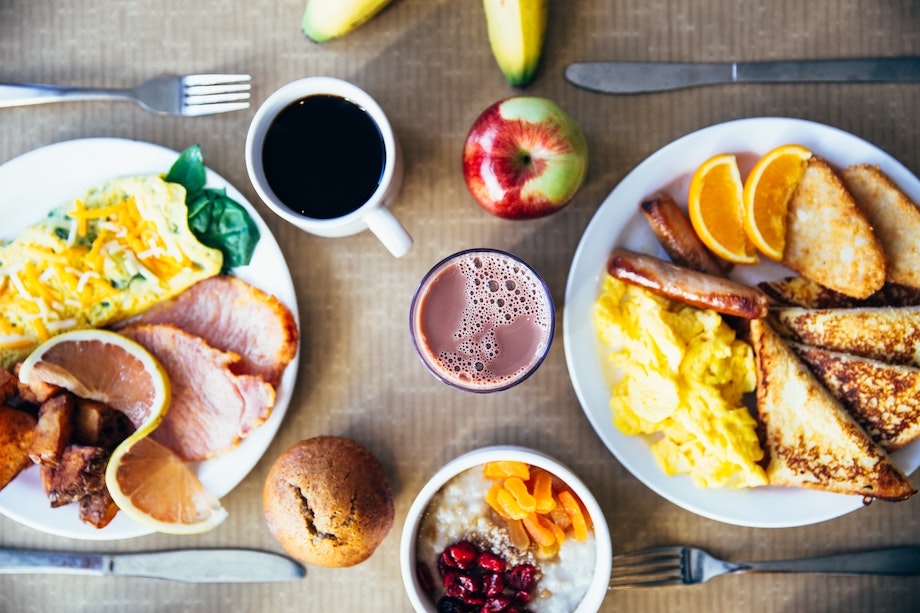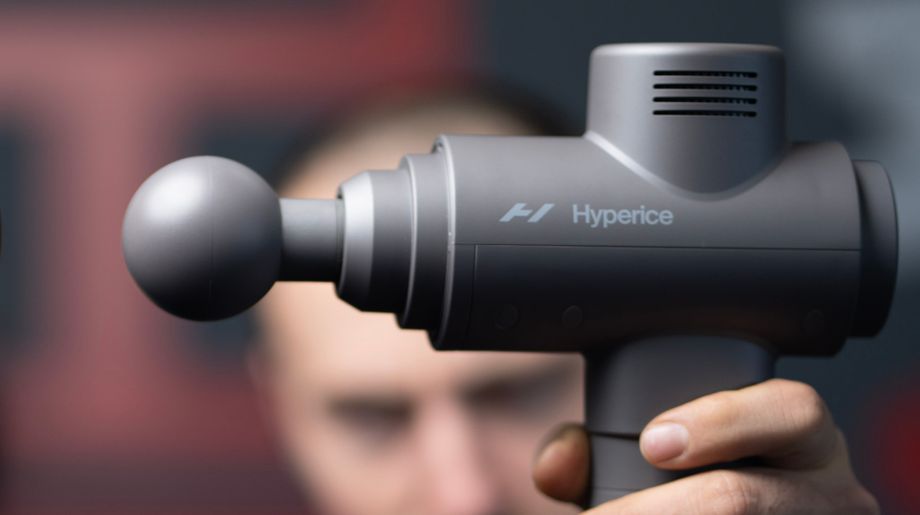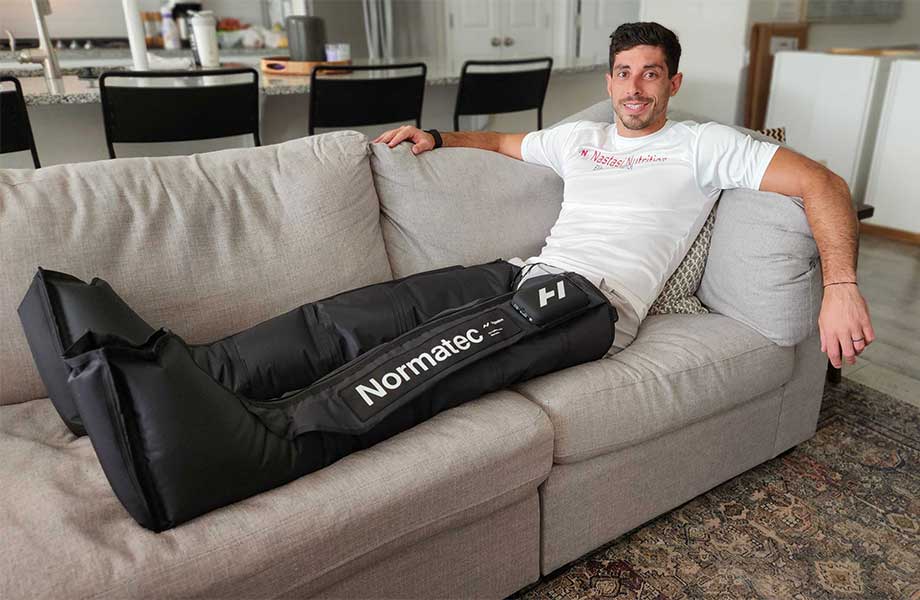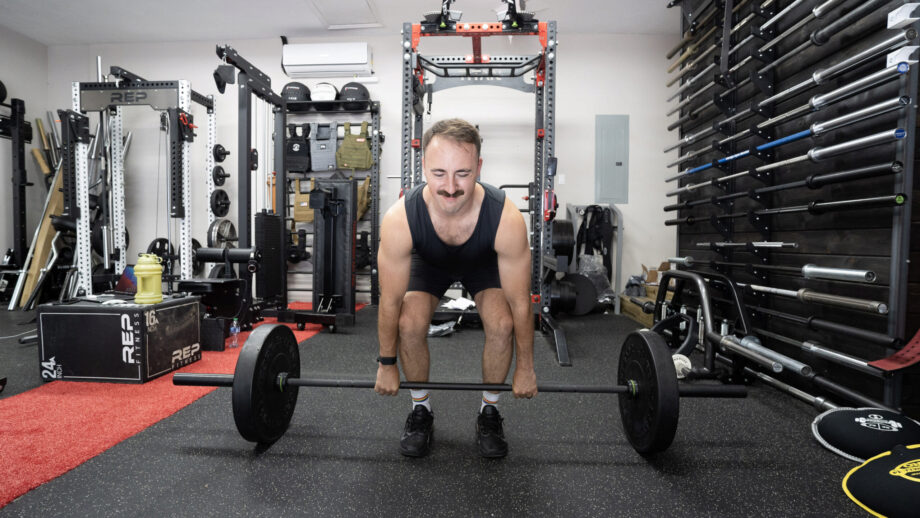Is breakfast, touted as the “most important meal of the day,” still crucial before a morning workout? Although the answer may sound vague, it depends.
Some morning exercisers don’t mind training on an empty stomach, while others wouldn’t dare to. As a morning exerciser and proponent of #teamfedtraining myself, I admit to sporadic workouts with only caffeine brewing in my system.
All this underscores a key point: your pre-workout breakfast is personal and can waver. Also, as a dietitian passionate about breakfast food (notably oatmeal) and guiding others toward their goals, let’s chat about morning fueling that best aligns with your lifestyle and training goals.
Medical disclaimer: This article is intended for educational and informational purposes only. It is not intended as a substitute for medical advice. For health advice, contact a licensed healthcare provider.
Is It Better to Work Out Before or After Breakfast?
Your preferences and lifestyle shape whether working out before or after breakfast is better. But consider pre-workout nutrition as fuel for a car: If you expect a long journey driving almost on “E,” you’ll soon realize you should have filled the tank.
Research1 suggests sufficient muscle glycogen enhances performance and muscle recovery, improving subsequent workouts. Pre-exercise nutrition2 may also delay time to exhaustion and improve your cognition and mood later in the day3.
Eating breakfast beforehand also helps suppress your appetite4, keeping you focused in the gym rather than tapping out early in the name of waffles (especially if you’re trying to power through a 20-hour fasting window while hangry).

What About Fasted Training?
We won’t dive deep into fasted cardio and training, but it’s worth mentioning since breakfast is typically skipped among fasters.
Training while fasting may help avoid exercise-induced nausea5 and allot more time in bed and out of the kitchen. It may also support blood sugar control and weight loss, although studies are mixed on its true and lasting effects on body composition.6
However, fasted training can reduce energy, exacerbate stress levels, and contribute to disordered eating patterns. It also poses severe risks of low blood sugar, especially for individuals with diabetes.
Ultimately, assess your energy levels and be proactive in your nutritional strategy for successful fasted training. But know that many quick, stomach-friendly pre-workout breakfasts can enhance your performance, too!
What Are the Best Foods to Eat for Your Pre-Workout Breakfast?
The best pre-workout food depends on your workout type, food tolerances, and meal timing. Generally, opt for easily digestible foods if your workout is soon, and choose slower-digesting options if you have more time before exercising.
Regardless, constantly fuel your workout with carbs and frequently promote an anabolic environment with protein. Fats may potentially be in your pre-workout breakfast when there’s time to spare.
Carbohydrates for Fuel, Constantly
As the body and brain’s preferred energy source, carbohydrates are essential in your pre-workout breakfast regardless of when you eat. Our muscles use glucose (the simplest form of carbs) for fuel and store it as glycogen.
Without carbs, our body can break down muscle and fat to make glucose for energy, but our muscle glycogen stores are limited. Your performance and precious muscle mass diminish as glycogen stores deplete, although eating carbs can help prevent muscle breakdown.
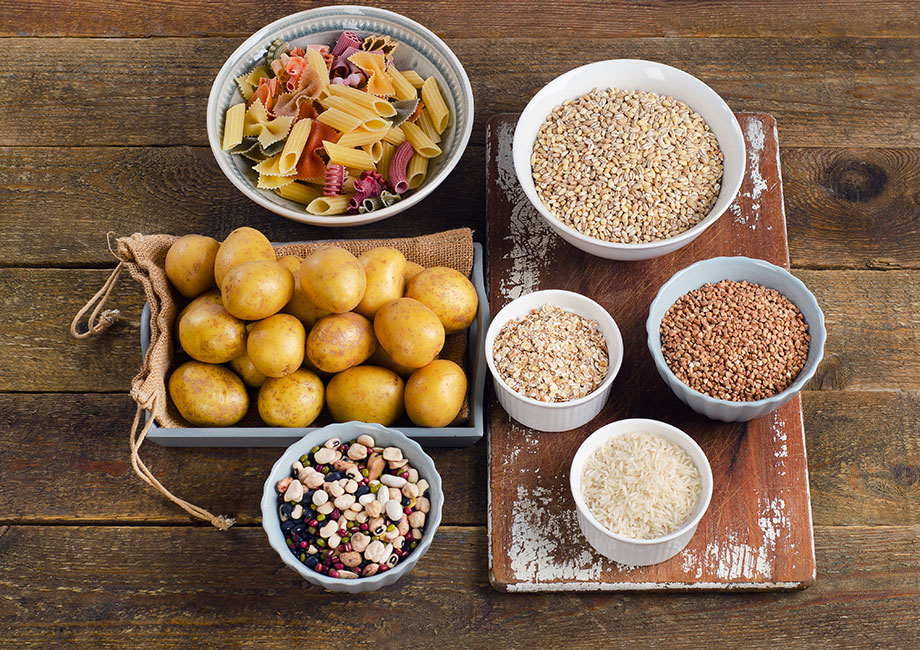
Consume 1 to 4 grams of protein per kilogram of body weight 1 to 4 hours before exercise, mainly if your workout lasts 60 minutes or longer7, according to a position paper8 from the Academy of Nutrition and Dietetics (Academy), Dietitians of Canada (DC), and the American College of Sports Medicine (ACSM).
Carb quality matters, too, and is likely why you hear about “good” versus “bad” carbs.
Good vs Bad Carbs
As a dietitian, I don’t favor labeling foods as “good” or “bad” and believe food is food, just some more nutritious than others. So, let’s reframe this lingo and highlight how carbs might be “good” or “bad” for your workout.
Complex carbs—like whole grains, legumes, potatoes, and some fruits—are “good” for providing sustained energy for your workouts. But they can be “bad” if consumed right before a workout, particularly if they’re high in fiber.
Conversely, simple carbs—found in foods like white bread, sports drinks, pastries, and even fresh fruits—are quickly digested, making them “good” for immediate workout fuel. But simple carbs can be “bad” if eaten too far in advance since the energy might not last until your workout.
Consider mixing it up for the best results, especially when you have time to spare! Research9 suggests combining complex carbs with fruit can enhance muscle carb delivery, ensuring a balanced energy source for your exercise routine.
Protein for Anabolism, Frequently
Some research10 encourages consuming 20 to 30 grams of protein before exercise, especially for resistance training. However, Destini Moody, RD, CSSD, LD, a sports dietitian and head of performance nutrition for the NBA G League Ignite, cautiously advises consuming no more than 15 grams of protein in a pre-workout snack so fuel (mainly carbs) is accessible for your workout.
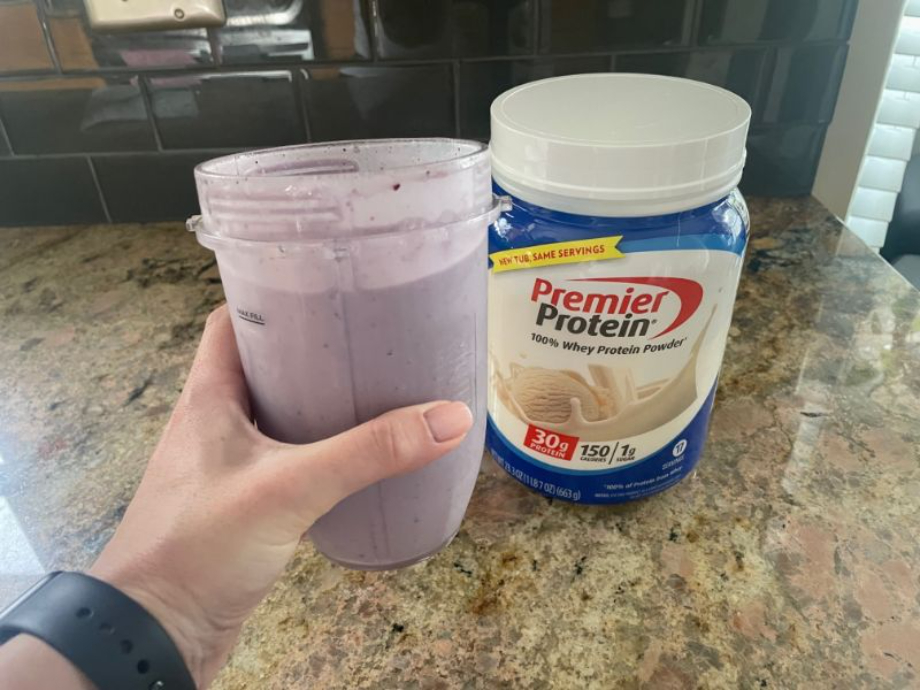
And while pre-exercise protein might increase muscle protein synthesis11, the post-workout protein counts most8. The International Society of Sports Nutrition (ISSN)12 also supports that protein timing is less important than hitting your daily protein targets, aiming for 20 to 30 grams every 3 hours.
To optimize your training session, consume a full morning meal with at least 20 grams of protein if you have more than two hours before your workout. If training within the hour, go for quick-digesting proteins, such as whey isolate or amino acid supplements. Also, remember the importance of a high-protein breakfast post-workout!
Fats for Pre-Workout Nutrition, Potentially
Dietary fats should ideally comprise 20 to 35 percent of daily calories to support your health and performance goals. More specifically, these fats should come from healthy sources—like fatty fish, nut butter, chia seeds, and olive oil.
However, consuming fat in your pre-event meal can cause digestive distress and disrupt proper fueling because it takes longer to digest. If you are nearing your workout time, consume fat in smaller amounts for optimal performance.
Fluids for Hydration, Undoubtedly
Staying hydrated is critical for peak health and fitness performance, and even slight dehydration can hinder your athletic abilities. Begin every workout well-hydrated, replenish fluids during and after exercise, and don’t overlook the importance of electrolytes like sodium and potassium.

Foods to Avoid Before a Morning Workout
To reduce the risk of gastrointestinal issues while training, limit or avoid foods rich in fat and fiber the closer you get to training7. Also, prioritize fast-digesting protein sources and moderate how much you consume.
Avoid foods based on your dietary restrictions, as well. So, if you’re lactose intolerant, it’s wise to trade in that dairy-based yogurt parfait for one of the best vegan protein shakes.
9 Pre-Workout Breakfast Ideas
Because optional pre-workout meals depend on your schedule and other factors, we’ve got you covered with timely RD-approved pre-workout breakfast ideas!
30-60 Minutes Before
When short on time, grab quick-digesting carbs for an instant energy boost. Add a bit of protein, especially if strength or hybrid training, aiming for fast-absorbing sources and keeping it under 15 grams.
1. Fruit
A serving of fruit—like a banana or carton of raisins—conveniently offers quick pre-workout fuel. A fruity protein smoothie can also come in handy; just scale back on the protein and fat added as you near your workout.
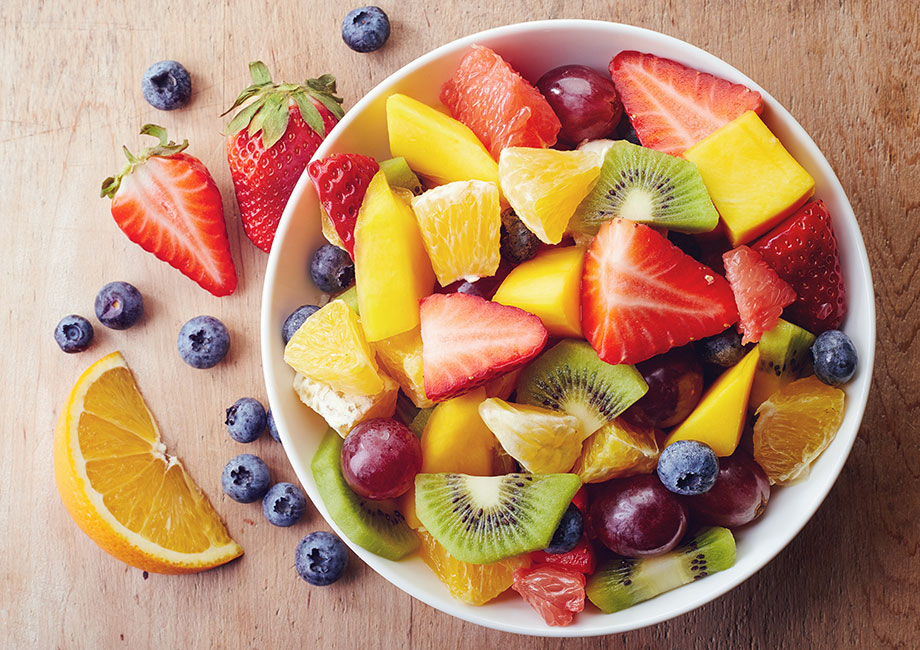
2. White Toast with Jelly
A slice or two of white toast smeared with jelly is a quick-fueling breakfast option. If you have more time before your workout, consider whole-grain toast for longer-lasting energy, and add a thin layer of peanut butter or a hard-boiled egg for protein.
3. Low-Fat Granola
A low-fat granola bar or a handful of granola offers a quick boost of simple carbs and moderate protein. Opt for a protein bar as an alternative, but one with carbs and minimal artificial ingredients to prevent digestive issues, especially before a workout.
1-2 Hours Before
With an hour or two to spare, fuel up with a mini meal with simple carbs for quick digestion and a sprinkle of complex carbs for sustained energy. Also, increase protein content, and include a small amount of healthy fats as desired.
4. Greek Yogurt Parfait
A serving of protein-rich Greek yogurt topped with low-fat granola and antioxidant-packed blueberries can boost your energy in a pinch.
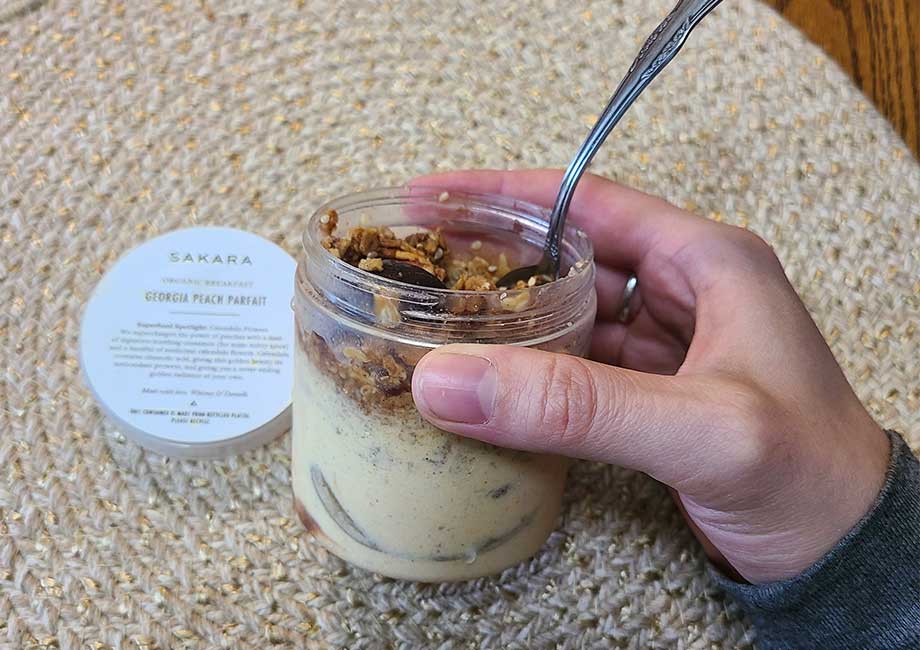
5. Rice Cakes with Nut Butter
Top easily digested plain rice cakes with almond butter and sliced banana. This winning combo provides a balanced mix of carbs, protein, and healthy fats to energize and sustain you through your workout.
6. Cereal
Pair 1 to 2 cups of cereal (based on your carb needs and the cereal type) with 1 cup of low-fat milk for a quick-to-assemble and digest pre-workout breakfast. Alternatively, swap out the milk for a whey protein shake or mix plant-based protein powder with almond milk to cater to your nutritional preferences and requirements.
2-4 Hours Before
If you’re an early morning riser with adequate time to digest before training, fuel up with slow-digesting carbs, protein, and healthy fats as you would a full meal.
7. Overnight Oats
Prepared ahead for oat-of-this-world convenience, overnight oats combine energy-rich carbohydrates, protein, and healthy fats, ensuring sustained energy for your workout.

8. Breakfast Sandwich
Customize your pre-workout nutrition with a satisfying and fueling breakfast sandwich. Simply layer your chosen carb canvas (like an English muffin) with 2-3 eggs or egg whites, low-fat cheese, and other toppings as desired.
9. Veggie Omelet Platter
A 2-3-egg omelet with veggies and a side of sweet potatoes and orange slices is an energizing start to your day and will help fuel your training in the upcoming hours.
Pre-Workout Breakfast: Final Thoughts
Your ideal pre-workout breakfast will vary based on your training goals, dietary needs, and other personal factors. However, these general guidelines can help you fuel, build muscle, and recover optimally depending on your training schedule:
- Within 30-60 minutes of training? Opt for quick-digesting carbs and consider some protein, especially if hybrid or strength training.
- Eating 1-2 hours before? Balance simple and complex carbs with protein and a bit of healthy fats.
- Have 2-4 hours? Prioritize slow-digesting carbs, complemented with adequate protein and healthy fats.
Flexibility is also key—you may breakfast like a king some mornings and others like a bird barely catching the worm. By planning and experimenting, you can align your fitness goals and daily routine with your pre-workout breakfast, reinstating itself as the most important meal of your day.
Pre-Workout Breakfast: FAQs
What is a good breakfast before a workout?
A good pre-workout breakfast depends on meal timing. Have a full meal balanced with carbs, protein, and fat at least two hours before training, and opt for a lighter meal if you only have an hour or two. Snack on simple carbs with less than 60 minutes to spare, consuming post-workout nutrition ideally within the hour after training.
Can I eat breakfast 30 minutes before workout?
You can eat breakfast 30 minutes before a workout, but choose low-fiber, fast-digesting carbs for quick energy—like a cup of chocolate milk, a banana, half a bagel, or dried fruit.
Are eggs or oatmeal better for pre-workout?
Between eggs or oatmeal for pre-workout, oatmeal is the go-to choice. It not only fuels your workout with essential carbs, but the protein in oatmeal compares to eggs—with a half-cup serving of oatmeal offering 5 grams of protein, close to the 6 grams found in one large egg.
What breakfast gives you the most energy in gym class?
For optimal energy, choose carbs as your primary fuel source. Use quick energy sources close to class—like fruit smoothies and white toast—and select slower-digesting carbs—like oats and potatoes—with more time to spare. Add protein and healthy fats for sustained energy, especially 2-4 hours before class.
These statements have not been evaluated by the Food and Drug Administration. This product is not intended to diagnose, treat, cure, or prevent any diseases.
References
- Murray B, Rosenbloom C. Fundamentals of glycogen metabolism for coaches and athletes. Nutr Rev. 2018;76(4):243-259. doi:10.1093/nutrit/nuy001
- Ormsbee MJ, Bach CW, Baur DA. Pre-exercise nutrition: the role of macronutrients, modified starches and supplements on metabolism and endurance performance. Nutrients. 2014;6(5):1782-1808. Published 2014 Apr 29. doi:10.3390/nu6051782
- Veasey RC, Gonzalez JT, Kennedy DO, et al. Breakfast consumption and exercise interact to affect cognitive performance and mood later in the day. A randomized controlled trial. Appetite. 2013 Sep;68:38-44. doi: 10.1016/j.appet.2013.04.011. Epub 2013 Apr 20. PMID: 23608698.
- Nasr L, Sacre Y, Attieh R, Mannan H. Association between the Timing of Pre-Workout Macronutrient Intake and Rated Appetite among Resistance-Trained Adults in Jbeil, Lebanon. Int J Environ Res Public Health. 2023 Jan 29;20(3):2399. doi: 10.3390/ijerph20032399. PMID: 36767765; PMCID: PMC9915277.
- Kondo T, Nakae Y, Mitsui T, Kagaya M, Matsutani Y, Horibe H, Read NW. Exercise-induced nausea is exaggerated by eating. Appetite. 2001 Apr;36(2):119-25. doi: 10.1006/appe.2000.0391. PMID: 11237347.
- Schoenfeld BJ, Aragon AA, Wilborn CD, et al. Body composition changes associated with fasted versus non-fasted aerobic exercise. J Int Soc Sports Nutr. 2014;11(1):54. Published 2014 Nov 18. doi:10.1186/s12970-014-0054-7
- Rothschild JA, Kilding AE, Plews DJ. What Should I Eat before Exercise? Pre-Exercise Nutrition and the Response to Endurance Exercise: Current Prospective and Future Directions. Nutrients. 2020 Nov 12;12(11):3473. doi: 10.3390/nu12113473. PMID: 33198277; PMCID: PMC7696145.
- Thomas DT, Erdman KA, Burke LM. Position of the Academy of Nutrition and Dietetics, Dietitians of Canada, and the American College of Sports Medicine: Nutrition and Athletic Performance. J Acad Nutr Diet. 2016 Mar;116(3):501-528. doi: 10.1016/j.jand.2015.12.006. Erratum in: J Acad Nutr Diet. 2017 Jan;117(1):146. PMID: 26920240.
- Ormsbee MJ, Bach CW, Baur DA. Pre-exercise nutrition: the role of macronutrients, modified starches and supplements on metabolism and endurance performance. Nutrients. 2014;6(5):1782-1808. Published 2014 Apr 29. doi:10.3390/nu6051782
- Bytomski JR. Fueling for Performance. Sports Health. 2018;10(1):47-53. doi:10.1177/1941738117743913
- Cintineo HP, Arent MA, Antonio J, et al. Effects of Protein Supplementation on Performance and Recovery in Resistance and Endurance Training. Front Nutr. 2018;5:83. Published 2018 Sep 11. doi:10.3389/fnut.2018.00083
- Kerksick CM, Arent S, Schoenfeld BJ, et al. International society of sports nutrition position stand: nutrient timing. J Int Soc Sports Nutr. 2017 Aug 29;14:33. doi: 10.1186/s12970-017-0189-4. PMID: 28919842; PMCID: PMC5596471.


